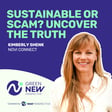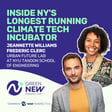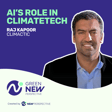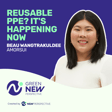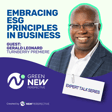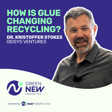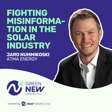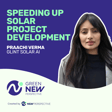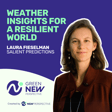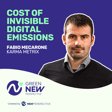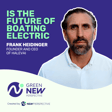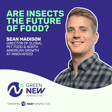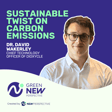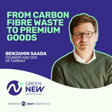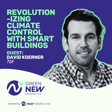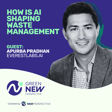
Launching a Sustainable Fashion Business
In this episode, we gave basic resources for launching a sustainable fashion business. While this content is great for conscious brand founders, we also wanted to inform everyone: whether you’re curious to know the behind-the-scenes sustainable production stories or you want a deeper understanding of the industry.
🌱 There is a growing movement and community that is pushing for change and reshaping the fashion industry.
🕑 💡 KEY MOMENTS
==================
[00:06:24] 👗 The past and present of fashion and sustainability
[00:08:08] 🌱 Maria's journey to slow fashion
[00:12:54] 👗 Rethinking raw materials
[00:15:43] 🌱 Degrowth and slow fashion
[00:18:20] 🌱 Reshaping the future through textile agriculture
🌍 SUSTAINABILITY PODCAST CREATED BY NEW PERSPECTIVE
========================
This podcast is proudly sponsored by New Perspective Marketing, a dynamic growth marketing agency in Boston, MA, celebrating 20 years in business. We help sustainably focused B2B organizations grow their brands and scale up revenue. If you or your organization is looking to grow, visit npws.com for more info.
🎧 SUBSCRIBE TO OUR PODCAST
===========================
- Spotify: https://bit.ly/3PSWIyI
- Apple Podcasts: https://bit.ly/3RvlHte
- Youtube: https://bit.ly/3RDzkXg
- Google Podcasts: http://bit.ly/465gjS5
- Deezer: https://bit.ly/3PvQaof
- Amazon Music: https://bit.ly/3PQlijS
- Zencastr: https://bit.ly/48xt75s
💬 FOLLOW US ON SOCIAL MEDIA
============================
- Instagram: https://www.instagram.com/greennewperspective/
- Twitter: https://twitter.com/gnperspective
- Facebook: https://www.facebook.com/greennewperspective
- LinkedIn: https://www.linkedin.com/showcase/greennewperspective/
- TikTok: https://www.tiktok.com/@greennewperspective
- Threads: https://www.threads.net/@greennewperspective
#sustainabilitypodcast #cleanenergy #greennewperspective #sustainability #cleanenergy #podcast #cleantech
